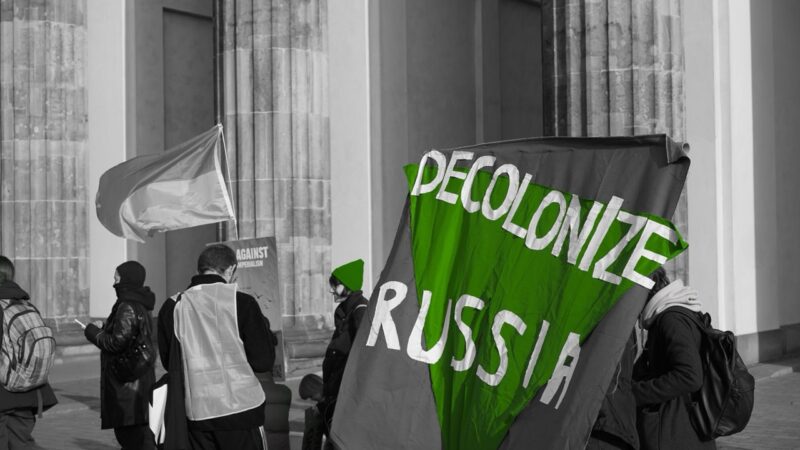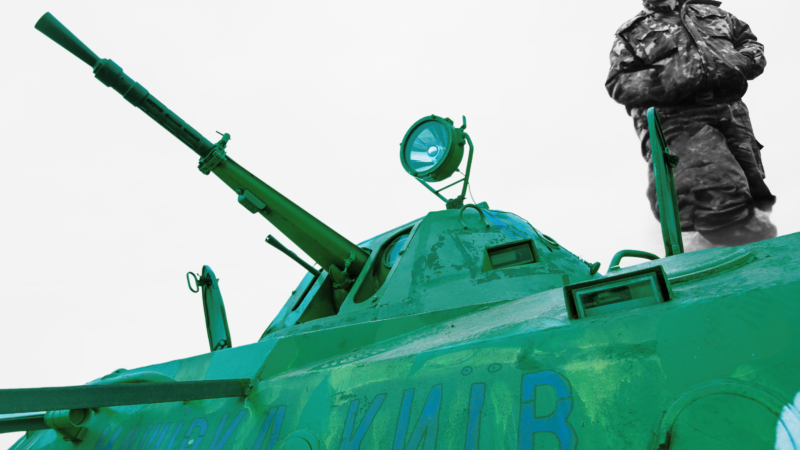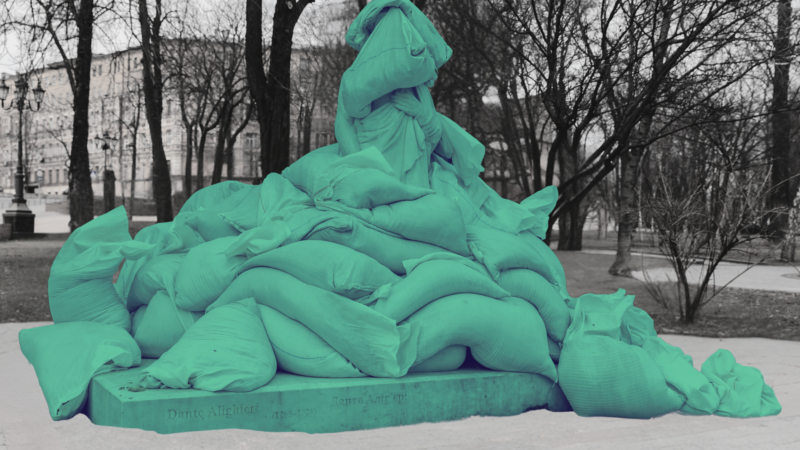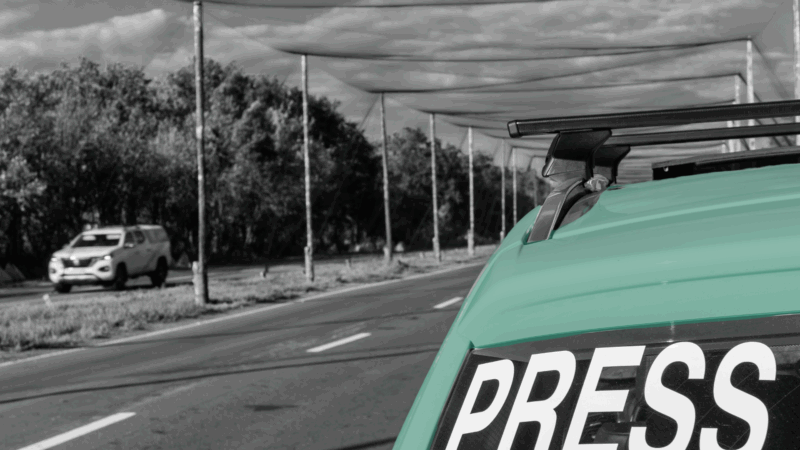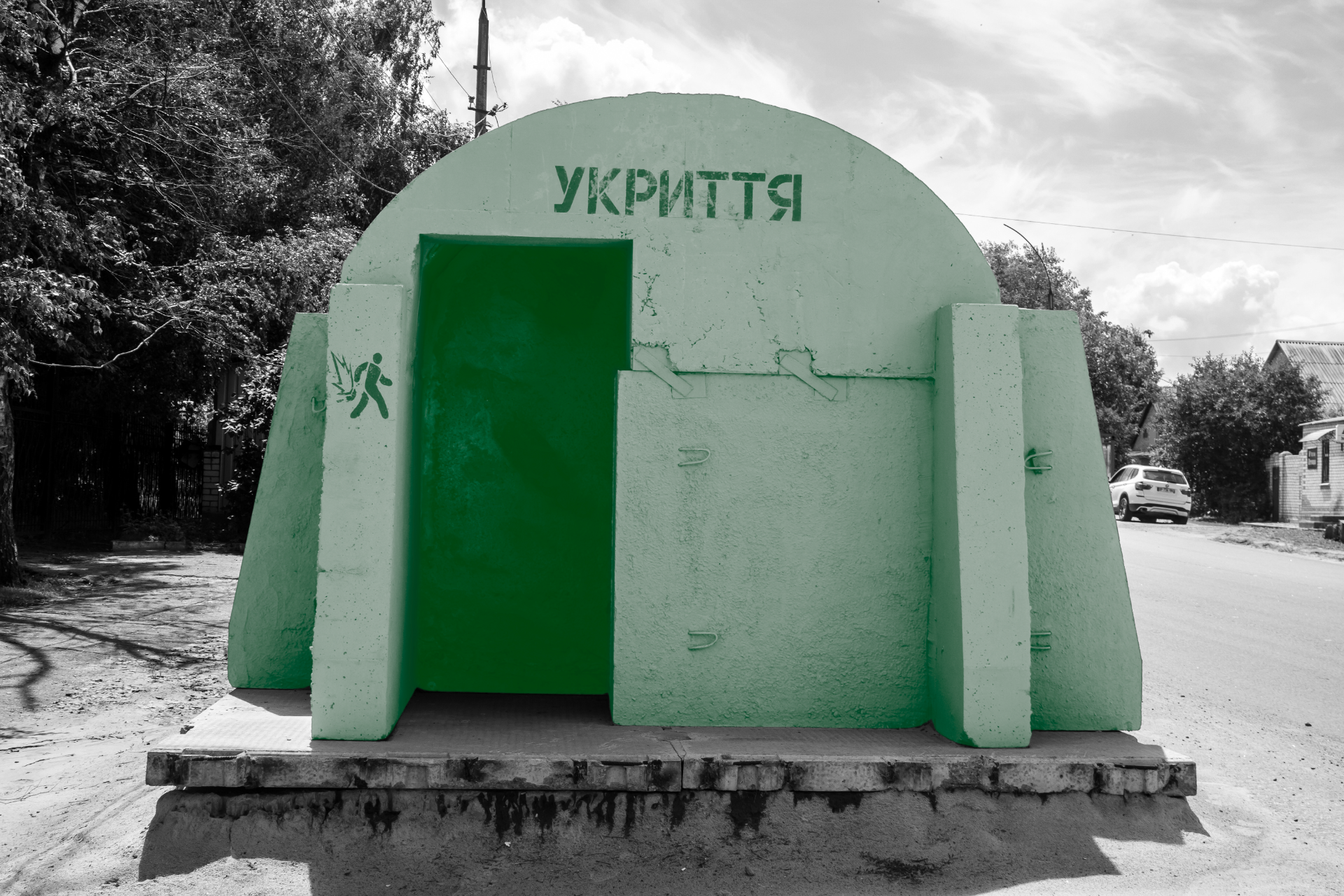Interview with Andrii Zharikov | “The UK can become a special platform for rebuilding Ukraine”
Ostap Kushnir: How has the perception of Ukraine changed across the UK since February 2022?
Andrii Zharikov: I think it has changed considerably and positively. For a long time Ukraine was viewed simply as another post-Soviet republic without any deeper insight into its identity and culture. In February 2022 people here in the UK started researching more about the country. Their awareness of its history and traditions has grown to a much higher level since then. People have built a background in regional politics and now better understand the reasons for the ongoing war.
The experience of active fighting, even though it comes with great suffering, has put Ukraine on the world map and introduced it to the general public. There was little interest in Ukraine before the Russian invasion. But now the situation has drastically changed. If you go on the streets of any British city and ask anyone about what is happening in that part of the world, you will hear some very knowledgeable answers.
Kushnir: In your opinion, why has the government in London decided to become one of the major supporters of Ukraine, especially in regard to military equipment and training?
Zharikov: It is an interesting question. I am sure that no governmental support would be possible if the UK public did not back it up. And public opinion has grown very strongly pro-Ukrainian since February 2022. There are a few reasons behind it.
Above all, from my observations British people simply do not tolerate any injustice or unfairness—and the situation around Ukraine is clearly not fair. The sole fact of an unprovoked Russian invasion cries out for sympathy for the Ukrainians, who were forced to defend themselves and got stuck in fighting.
Another reason behind the public demand to do something for Ukraine stems from the personal grief of British people. The war in Ukraine is reminiscent of their WW II history. Many British cities were bombarded, and the whole nation had to stand and resist alone. People then volunteered to join the military and protect their homeland. So I see some parallels here.
Lastly, there is the role of individual politicians. As you know, Boris Johnson was head of the government back in early 2022. At that time, he had been facing some problems with domestic policies, with a couple of scandals linked to him. Therefore, I think Johnson used the Russian invasion as an opportunity to prove that the whole course of his previous actions had been relevant. Also, he wanted to score additional points by becoming active in the international arena and advocating the cause of Ukraine. As one of the biggest proponents of Brexit, he also wanted to show that stepping out of the EU had been a good move. Finally, supporting Ukraine was simply the right thing to do in his view. Considering all these variables, Johnson decided to act and eventually grew into the leader of the entire international movement of Ukraine’s allies.
Kushnir: How many Ukrainians moved to the UK after the full-scale invasion started? How are they integrating into British society?
Zharikov: The numbers are relatively modest if you compare them to the big continental European countries like Germany and Poland or to countries that neighbour Ukraine. The official statistic puts it at fewer than 200,000 people. The real number may be even smaller, as it is hard to trace those who have since left. Generally, I do not think that the British migration measures designed to help Ukrainians have been comprehensive or ideal. They came quite late in the day, looked like rather rushed decisions, and have not worked well in practice.
There are two schemes for how Ukrainians can get to the UK. The first is the family scheme, where refugees need to obtain an invitation from a UK citizen who is their family member. The second is the sponsorship scheme, where any UK citizen who meets the requirements—primarily, has a bedroom to spare—can become a sponsor and welcome Ukrainians at his or her place. Both of those schemes, as I mentioned, have flaws. They were criticized by the United Nations as ineffective and even traumatic. On the sponsorship side, the state often failed to complete a thorough examination of households of UK citizens who wanted to become sponsors. Therefore, it sometimes happened that vulnerable Ukrainians ended up in places where proper living was impossible. In the worst cases, Ukrainians were forced to engage in illegal activities, which made them subject to criminal prosecution.
We rightly think that the UK has become one of Ukraine’s greatest friends. This might hold in the context of actual military cooperation, but not that when considering social programs. In terms of basic support, like finding sponsors or learning English, Ukrainian refugees have been mostly left to themselves. There is no government-led system that introduces refugees to the new culture, language, and lifestyle. The options for accommodation have been limited, too. Even some social expenses, like education for schoolchildren, have been outside the bounds of government supervision and have put extra strain on Ukrainian newcomers. In general, I think that the social programs could have been much better designed. In other European countries, Ukrainian refugees enjoy higher levels of support, including being able to receive humanitarian aid.
There was one extraordinary step that the UK government adopted, though: special regulations were passed to ensure that refugees from Ukraine, unlike any other refugees, have the same rights as UK citizens. This means that Ukrainians are able to get a job without a work permit, apply for loans with banks in the UK, enjoy local tuition rates when studying at UK universities, use the National Health Service, and benefit from other support programmes.
Kushnir: Apart from the government, how are Ukrainians approached by the ordinary British? The UK has been known to the world as a migrant-wary country, and today it faces a massive influx of Ukrainians. How do ordinary people treat the newcomers?
Zharikov: Indeed, immigration has always been a sensitive issue in British politics. Until recently, whenever someone started speaking about immigration, it would usually be perceived in a negative light. However, the case with Ukrainians is different. These refugees are welcome. The British public does not see them as a menace. I think there is an implicit understanding that most of the Ukrainian refugees are women and children.
As I mentioned earlier, there has never been a sort of support in the social adaptation of the refugees or, for example, an initial welcome package. To compare, the member states of the European Union are much more generous than the UK.
So in terms of social attitude, Ukrainian refugees are fine and welcome. In terms of actual support, this is where the UK needs to improve—and today it is doing so.
Kushnir: As a coordinator of your university’s cooperation with the Odesa Polytechnic National University under the Twinning Scheme, can you shed more light on the recent intensification of partnerships between the British and Ukrainian academic institutions? Why has this intensification taken place, how are the partnerships evolving, and where do you think they will lead?
Zharikov: The Twinning Scheme was initially designed as a response to the unprovoked Russian aggression and an attempt to mitigate the damage inflicted on Ukraine’s academic institutions. It is a government-led initiative, which above all anticipates matching UK-based universities with partners in Ukraine. Apart from providing help in enduring difficult times, the Twining Scheme also aims to deepen interstate academic cooperation in future.
I am employed at the University of Portsmouth, and we were matched with the Odesa National Polytechnic University. I cannot explain why the scheme administrators made such a decision, but I think it is because both universities are located in port cities and the University of Portsmouth was once a polytechnic. Today, we are trying to provide our colleagues in Ukraine with immediate support in terms of continuing their teaching services and research activities. We are laying a foundation and establishing links for enhanced cooperation in the future. When the war is over we will likely conduct more joint teaching and research, including student and tutor exchanges.
For the moment we have received external funding for several projects that aim to improve Ukraine’s economic and social standing during and after the war. The expected outcomes of these projects entail designing recovery solutions at the national and—above all—local levels. I am not speaking here of academic recovery only, as the universities are also used as mechanisms and mediums. For example, we have projects which focus on providing support to vulnerable categories of people who are affected by the war and have been internally displaced. We have projects which explore the potential of 3D printing in order to produce special equipment for those Ukrainians who lost parts of their body in the fighting. We also have projects that deal with the safety of nuclear facilities.
In a word, the Twinning Scheme covers a wide area and funds a variety of projects from many disciplines. That being said, its core aim is to design solutions that will help Ukraine to come up stronger after the war is over.
Kushnir: In your opinion, what current needs of Ukraine and its society does the UK have the resources to address? What kind of support do you think Ukraine would appreciate the most in the circumstances it finds itself right now?
Zharikov: At the time of this chat, I think that military support is of the utmost priority. Without military support it is very difficult to expect the end of the war in the near future. Therefore, it is a very positive development that the UK became the leader of a pro-Ukraine military coalition. The government in London not only provides training and equipment, it also advocates and lobbies for Ukraine’s needs in the international arena. The UK has a long-standing reputation for being one of the world’s powerhouses and diplomatic centres. Therefore, the word of London weighs a lot in terms of influencing other countries and coordinating their military assistance to Ukraine.
As for social and economic issues, the UK could become—and is working on this—a special platform for rebuilding Ukraine through managing investments and financial arrangements. London is a global centre of finance and trade. In late June 2023 the Ukraine Recovery Conference took place there. This is a very positive development. I think London is growing into a comprehensive platform that can consolidate different actors—commercial, governmental, public, private, and others—to help Ukraine rebuild its society, economics, industry, and infrastructure.
Kushnir: In the future, regarding international arbitration, what will be the most challenging war-related cases between Ukraine and Russia, or between companies that are registered there?
Zharikov: I think that most cases will address the domain of international investment arbitration, not commercial arbitration. Simply speaking, there will be a necessity to assess and investigate the damage or destruction of facilities and other property during wartime. There will be a necessity to find those responsible for these actions and decide on how the compensation will be recovered, what kind of compensation it will be (monetary or other), and what legal mechanisms will be put into practice. I suspect that cases will be filed not only against Russia but possibly against Ukraine too, for their failure to protect certain assets that are considered to be international investments. So we need to be prepared for this.
Obviously, the majority of international arbitration cases will likely be against Russia—specifically, against the actions of the Russian government. But I can also see some cases against Ukraine, similar to the issues which arose after 2014 when Crimea was annexed. A number of foreign investors accused Ukraine, not Russia, of the loss of or damage to their property, though they had varied success with their claims. To summarize, after the war is over the majority of cases will concern investment disputes between private investors and the countries engaged in fighting.
Kushnir: Overall, what legal challenges and developments do you expect to encounter between Ukraine and Russia in future?
Zharikov: The obvious ones will be on the issue of war reparations and compensation. Less obvious will be issues that are not yet high on the agenda—for example, the status of Russian citizens who would choose to stay in Ukraine.
For Ukraine there will be an urgent call to change much of its legislation and accommodate the needs of people who left the country as refugees. This will include, for example, sorting out the issue of citizenship of internationally displaced persons. Many Ukrainians will have assimilated into their host countries to such an extent that they will feel it would be much easier to stay there instead of returning to their homes. I think that dual citizenship will become one of the priority legal matters to be addressed.
There will also be the problem of improving national legislation in order to attract more foreign investment and rebuild the country faster. It will overlap with the necessity of harmonizing Ukrainian legislation with that of the EU and meeting the requirements to be able to accede to full-fledged membership.
Overall, I am sure that in the legal landscape there will be a lot of matters to address after the war is over. Some of them will be more urgent, some less. As I see it, in the next few years Ukraine will become a completely different country in terms of legal regulations.
Kushnir: Do you think the initiative to redirect Russian frozen assets, both of state and private stakeholders, for Ukraine’s post-war reconstruction will work? What are the legal obstacles?
Zharikov: It is complicated. As far as I understand, some countries are not politically willing to endorse this initiative because it would set a precedent that could be used against them or their allies in the future. A solution may reside in finding a legal tool to execute the redirection of the Russian frozen assets within the confines of existing legislation. Setting up new legislation that relies on a new precedent is a dangerous route here.
Nevertheless, Ukraine’s partners and allies continue exploring opportunities for compensation using frozen Russian assets within the means and tools they possess today. I cannot tell whether such efforts will suffice, because some countries are quite reluctant to proceed consistently. Their reluctance stems not only from the fear of legal complications but also in the absence of political will.
Overall, the redirection of Russian frozen assets in order to fund the reconstruction of Ukraine will take time to discuss and execute. It might happen that Ukraine’s case will become not about Ukraine only but will also lead to the creation of a mechanism that will address similar transgressions in the future. At the moment, heated debates are taking place on this issue. My guess is that it will take a number of years to finally set everything up.
